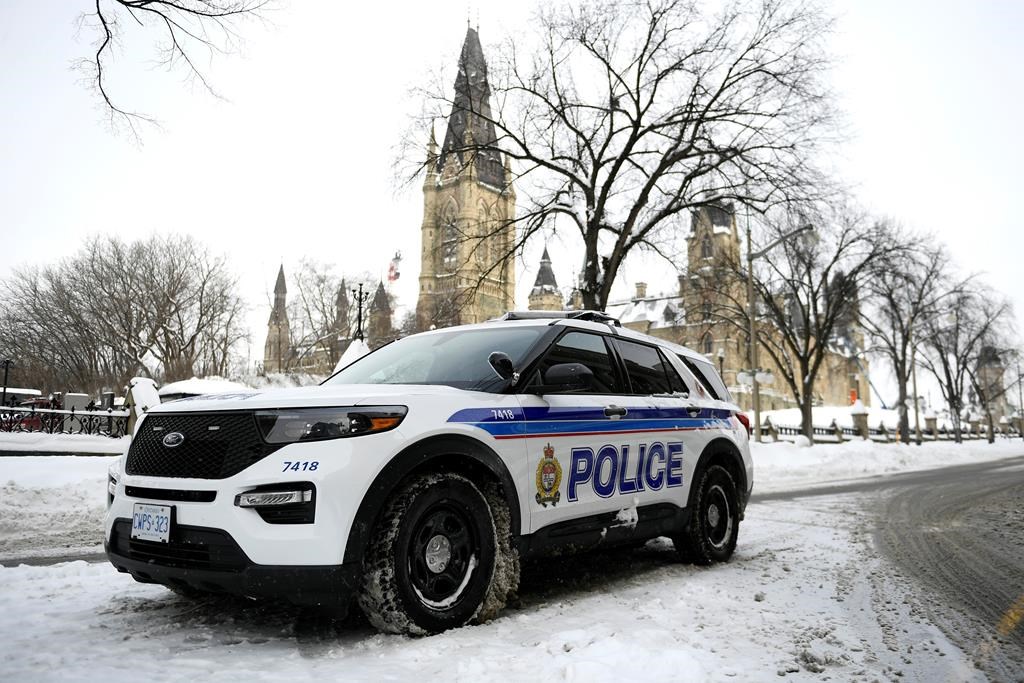Ottawa police are pledging tochange the way they respond to mental health calls as critics condemn a $15.2-million increase to the city’s policing budget on Wednesday.
Council approved the $402-million budget after police said the new money was needed for hiring 25 officers, creating a body-worn camera project and making strategies for future protests.
A small group of demonstrators showed up to call for council to vote against the police budget increase.
Despite the budget approval, some city councillors were focused on changing the response to emergency mental health calls, saying there needs to be a way to direct 911 crisis calls to better-trained officers and crisis support workers.
Coun. Shawn Menard voted against the budget, arguing that more money will not help prevent crime. Instead, he proposed a motion to reallocate funds from the budget to help improve social services. The motion did not pass.
“We need to reduce the stressors and anxiety in people’s lives that lead to social dysfunction and more trouble-prone environments through social investment,” Menard said. “And doing this will do more to prevent crime than a larger police budget will.”
Police Chief Eric Stubbs said the force is looking at the success of a mental health pilot project in Toronto and already beginning to revamp the dispatch centre to better accommodate people in crisis.
“We are investing money into our dispatch centre to train our dispatchers as well as to include mental health support workers in the dispatch centre to have that initial contact with people that are calling in that are in crisis,” said Stubbs.
In February 2022, a pilot program was launched in certain areas of Toronto to respond to mental health crisis calls made to 911. Rather than sending police as the first responders to such calls, the program deployed two-person teams, which may include a harm-reduction worker, nurse, or de-escalation expert.
The responders meet the individual in crisis to determine what they may need. Response teams also return to check on the person within two days to provide further support.
Under the pilot program, these crisis teams responded to 400 incidents, redirecting those calls from police.
The city of Toronto announced the implementation of two more community crisis pilots in two additional parts of the city in July 2022.
“Toronto Community Crisis Service pilot program is an opportunity to revolutionize how we respond to mental health crises and support communities who are often over-policed and under-supported,” said Michael Anhorn, CEO of the Canadian Mental Health Association, in a statement at the time.
Stubbs said he is fully on board with bettering the Ottawa police response to mental health calls.
Donna Gray, the city’s general manager of community and social services, said that her team is collaborating with the Ottawa police, staff and community to build a lasting mental health project.
Gray told reporters following the meeting that the first part of Ottawa’s pilot project would include an alternative line so that when a person in crisis dials 911 they can be triaged to emergency paramedic services.
Instead of an ambulance, a direct response team including a mental health practitioner, would go out to the individual in need.
“It’s been a discussion that’s been top of mind for the last couple of years as we’ve come out of the pandemic, and it was a priority identified in the community safety well-being plan,” Gray said.
The next part of the project will include a multidisciplinary response team with peer support that is able to offer necessary followup services.
Gray said the plan is to have the pilot project up and running by the fall.
This report by The Canadian Press was first published March 1, 2023.
———
This story was produced with the financial assistance of the Meta and Canadian Press News Fellowship.



